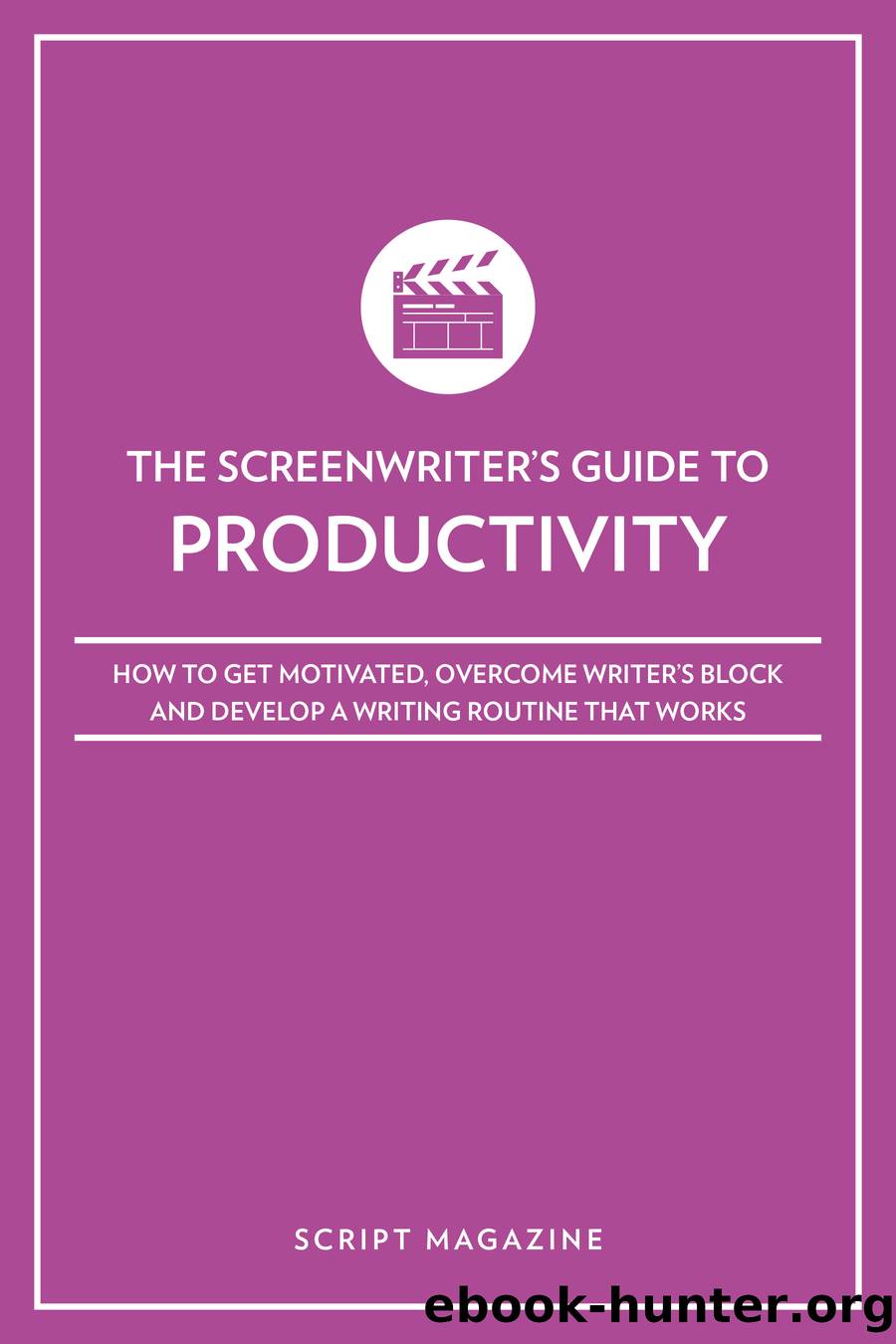Writing Routine and Outlook by Script Magazine Editors

Author:Script Magazine Editors
Language: eng
Format: epub
Publisher: F+W Media
Published: 2016-11-16T00:00:00+00:00
The Day Job vs. Passion Job Equation
by Shawn Tolleson
As you are building your career, you will likely be confronted by the problem of having to earn a living as you are pursuing your passion. Unless you are a trust fund kid (and my hatâs off to you if you are!), you will face the very critical challenge of needing money, time, and energy to pursue your passion. Alongside this, you will need to spend time and energy to earn a living. Having to manage both demands simultaneously can be fatal to your passion if youâre not careful.
Here are some guideposts Iâve developed over the last dozen years to guide my own choices and coach my clients to solving what I like to call the A Job/B Job problem.
First off, I like to call your passion your A Job and how you earn your living (if itâs by doing something else) your B Job. The reason is that âday jobâ has a negative connotation. When I hear the phrase, it says to me that you are just passing your time as a wage slave until your big break comes along.
If we rephrase the challenge into âA Jobâ and âB Job,â it opens up several possibilities. First, your B Job can be a vocation in which you are able to learn, grow, and contribute in a meaningful way, even as you are pursuing your passion. Take me, for example. Iâm a filmmaker, a writer and director. Thatâs my A Job. My B Job is career coach. But I donât even think of it as a B Job, let alone a day job. Itâs a B-plus Job or even an A-minus Job. I love it, and I make a huge difference in the careers and lives of my clients.
With this in mind, here are several guideposts for you:
Money: Your B Job needs to pay you enough in the time that you work that you can earn a decent living and still have time to pursue your A Job.
Time: Your B Job canât demand that you work around the clock, leaving you no time to pursue your A Job.
Synergy: Ideally your B Job has some synergy with your A Job. Itâs not completely disconnected. (Example: Working in a doctorâs office versus working in the entertainment industry as an assistant or PA.)
Relationships: Ideally your B Job helps you build relationships with people who can support you in your A Job.
Learning: It helps if youâre learning at your B Job. Because youâll likely spend a lot of time at your B Job, being able to grow and contribute makes it sustainable over the long haul.
Flexibility: This can be really important for some people, like actors, who have auditions come up at the last minute. This might be less important for writers whose priority is to set a writing schedule and keep it. Be clear about how much flexibility you really need.
Stability: It really helps if you donât have to keep looking for a B Job. Although
Download
This site does not store any files on its server. We only index and link to content provided by other sites. Please contact the content providers to delete copyright contents if any and email us, we'll remove relevant links or contents immediately.
The Rise and Fall of Senator Joe McCarthy by James Cross Giblin(5280)
Paper Towns by Green John(5191)
The Giant and How He Humbugged America by Jim Murphy(3448)
The Science Book (Big Ideas Simply Explained) by DK(3286)
Eleanor & Park by Rainbow Rowell(3173)
The President Has Been Shot!": The Assassination of John F. Kennedy by Swanson James L(3101)
The Rape Of Nanking by Iris Chang(2824)
Merriam-Webster's Collegiate Thesaurus, Second Edition by Merriam-Webster Inc(2758)
Harry Potter and the Deathly Hallows (7) by J.K. Rowling(2724)
Ancient Worlds by Michael Scott(2688)
Beautiful Oblivion by Jamie McGuire(2607)
Eligible by Curtis Sittenfeld(2584)
Dork Diaries 12 by Rachel Renée Russell(2366)
Sharp Objects by Gillian Flynn(2303)
The Unlikely Pilgrimage of Harold Fry by Rachel Joyce(2273)
Frankly, Frannie by AJ Stern(2209)
The Astronomy Book by DK(2157)
Forensics by Val McDermid(2092)
Who Was Louis Braille? by Margaret Frith(1981)
